LANDOVER, Md.— A little more than two hours before the opening kickoff of last Sunday's game against the Kansas City Chiefs, four young men in black Nikes and Washington Football Team gear ran side-by-side from one FedExField end zone to the other, part of an interval workout that saw the quartet breeze past the likes of Patrick Mahomes, Chase Young and Travis Kelce.
To the untrained eye, Luke Del Rio, Vincent Rivera, Todd Storm and seasonal coaching intern Cristian Garcia seemed to be living out some sort of NFL fantasy, or to be starring in a reality-TV episode. In reality, the fit foursome was collectively enjoying a rare moment of respite in a grueling -- but valuable -- vocational existence. As Del Rio, Rivera and Storm can attest, life as a quality control coach is a sprint and a marathon, an entrée into a taxing profession that makes life in the mail room seem like a stroll across the National Mall.
In most industries, quality control conjures images of a dour bureaucrat roaming a shop floor with a pen and clipboard, quietly tallying inventory and troubleshooting. Inside Washington headquarters in Ashburn, the 'QCs' on Ron Rivera’s staff play a vital role in preparing the team for upcoming opponents while attempting to soak up as much knowledge as possible for their future coaching endeavors.
They also do their share of grunt work.
"The QC basically does the worst of all the jobs," explains Rivera, who got his start in the profession as a Chicago Bears quality control coach -- with an assist from his former teammate, legendary running back Walter Payton. "When I was a QC guy, I used to beat everybody into the office and make the coffee, and I was usually the guy making sure the pots were all turned off at the end of the night. And if I didn't, all that black gunk would build up on the bottom, and I had to clean them with ice and salt water.
"You do a lot of dirty work, and a lot of times QCs get a lot of grief. It's kind of like being a freshman all over again."
Yet in some ways, the QC experience is an advanced course in coaching football at the highest level, with responsibilities ranging from drawing play cards, to running the scout team, to yelling out opposing formations in the coaches' box so that coordinators Scott Turner and Jack Del Rio can quickly make their respective calls on offense and defense.
Even when their duties are more mundane -- for example, logging the previous games of upcoming opponents into a formatted computer program, play after play after play -- quality control coaches are exposed to many of the analytical processes it will take to succeed as position coaches, coordinators and head coaches. They spend their seasons on a tiring treadmill, ending most Sunday nights by reviewing and logging video of their team's just-completed game, then coming to work the next morning before dawn to do the same for the next opponent's game from the previous day.
"There's not a big secret as to what it is -- it's really just a lot of grunt work," said Luke Del Rio, who along with Storm works on the offensive side of the ball, opposite his father, the team's defensive coordinator. "It's a lot of time-consuming tasks that most times are not necessarily difficult, but it's a very necessary part of the job, and it puts you in kind of an incubator that prepares you for the next level and allows you to learn from all of the coaches. It kind of frees you up to dip your toes in different spots and be a fly on the wall. And it's important to QCs while they're doing the grunt work to learn as much as they can, so that when they do get the opportunity to advance, they're ready."
While some entry-level coaches may not be ready for such a demanding, sleep-deprived existence, Del Rio knew what he was getting into. Because he grew up as an NFL coach's son, he was acutely aware of the grind -- and of the other potential pitfalls presented by the profession.
"I had several people try to talk me out of [coaching], and one of them was myself," Del Rio said last Saturday after logging yet another upcoming opponent's game into the computer -- this time, one involving the Tampa Bay Buccaneers, who'll visit Washington on Nov. 14. "I know how much I saw my dad growing up, and he was a head coach for a majority of that time and got to set his own schedule, so I saw him more than most."

Del Rio then recalled one of the least favorite days of his childhood, which occurred during his junior year at Episcopal School of Jacksonville.
"I was in Spanish class, in the lab, and NFL.com was on the computer," he said. "All of a sudden something popped up in that big red-and-black font that they don't use very often: Jack Del Rio Fired As Jaguars Coach. And pretty much the whole school cheered.
"My sister went home from school and an ESPN truck was blocking the driveway. I stayed in school and got into a fight. A guy was high-fiving his friend saying, 'We finally fired him, thank God.' The friend told him I was right behind him -- and he doubled down. And I punched him. It was a fun day."
For all the sarcasm of that last comment, Del Rio truly did try to avoid following his father into coaching. The problem was, it didn't work. After his collegiate career ended -- Del Rio, a quarterback, finished at Florida, where he made seven starts for the Gators -- he got his MBA and moved to Manhattan to try "to do the whole financial thing, but I hated it… I was looking forward to lunch breaks, so I could talk about football."
Del Rio then took a turn at football commentary but felt frustrated that he couldn't "dive deep" into strategy because it would go over the heads of most viewers.
Now he goes deep -- on many levels. On Wednesday mornings, Del Rio gives a detailed PowerPoint presentation to the entire offense about the upcoming opponent, throwing in scouting tips and arcane formations he absorbed along the way. And in practice, during individual periods and breaks that occur courtesy of special-teams periods, Del Rio runs routes for Washington's quarterbacks, typically logging more than four miles per session on his watch's fitness app.
"My high is six miles," Del Rio said. "I get a lot of steps in. I'm their full time receiver."
Like most quality control coaches, Garcia -- who is serving a QC-like role on defense -- knows what it's like to be on the receiving end of a bad day at the office. Garcia, one of Del Rio's former teammates at Florida, got a taste of that last season at Georgia Tech while working on Yellow Jackets coach Geoff Collins' staff as a graduate assistant, the collegiate equivalent of the QC.
"We had just lost to Clemson 73-7, and the coaching staff was not happy," recalled Garcia, who worked on the defensive side of the ball, as he currently does with Washington. "We finished the typical work to get ready for the next game [against Boston College], and they were furious. I had to draw up every single pass concept, every route that they ran. I was sitting in my office for eight hours; my eyes were about to bleed."
Now fast forward to the first week of the 2021 regular season: Garcia, who along with Vincent Rivera runs the defensive scout team in practice, winced visibly after a Washington defender failed to follow the assignment scripted on the play card.
"I was waiting to be yelled at," Garcia said.
To his surprise, it didn't happen. Rivera waited until after practice to scold Garcia for the mistake, and did so without throwing a tantrum.
"I learned watching Cristian that college coaches yell a lot more than I do," Ron Rivera said, smiling. "He was cringing [after the missed assignment], but I pulled him aside afterward and said, 'I know there are only certain things you can control.' It's a 50-50 proposition that a guy is gonna do what you want him to do."
Doing things the right way is a given for Garcia, who triggered national headlines during the summer before his junior year at Florida when he helped stop a sexual assault. Garcia, who worked as a bouncer at a popular nightspot across from campus, encountered an unconscious woman being assaulted when he went outside to take out the trash and intervened. That fall he received an "It's On Us" Courage Award during a reception at the Washington, D.C. home of then-Vice President Joe Biden.
Not surprisingly, Garcia views his current job in terms of its potential impact on others.
"It's a servant profession," he said. "You're serving the coaches and serving the players. It can be a little humbling at times."
That can be especially true on game days, when QCs sit in the upstairs coaches box and are very much on the spot. Amid the drama, Garcia charts Washington's defensive calls and each play's outcome in real time and tries to synthesize the information.
"I tally things up right after each series," he said. "I look for tendencies within down and distance and specific personnel. I input the calls onto the Microsoft Surface [tablet] so the coaches can look in between series. And at halftime, I'll very quickly relay my notes to Jack."
Vincent Rivera, who shares defensive QC duties with Garcia, is charged with identifying opponents' formations and verbalizing that information to Jack Del Rio so that the coordinator can make his call. It's not always as clear-cut as it sounds.
"Sometimes teams will have 14 guys in the huddle and the [defensive] coordinator's yelling, 'What's the personnel?'" laughed Rivera, a former Cal running back/receiver who everyone calls Bug. "I look at these [offensive] coordinators who try to mess with the QCs like that and I'm like, 'You're killing me.' It's a tough job because the entire defense is predicated on what personnel there is, and you have to be fast, and you have to be right."
The Washington Football Team begins preparations for its Week 7 matchup against the Green Bay Packers. (Photos by Emilee Fails and Karlee Sell/Washington Football Team)



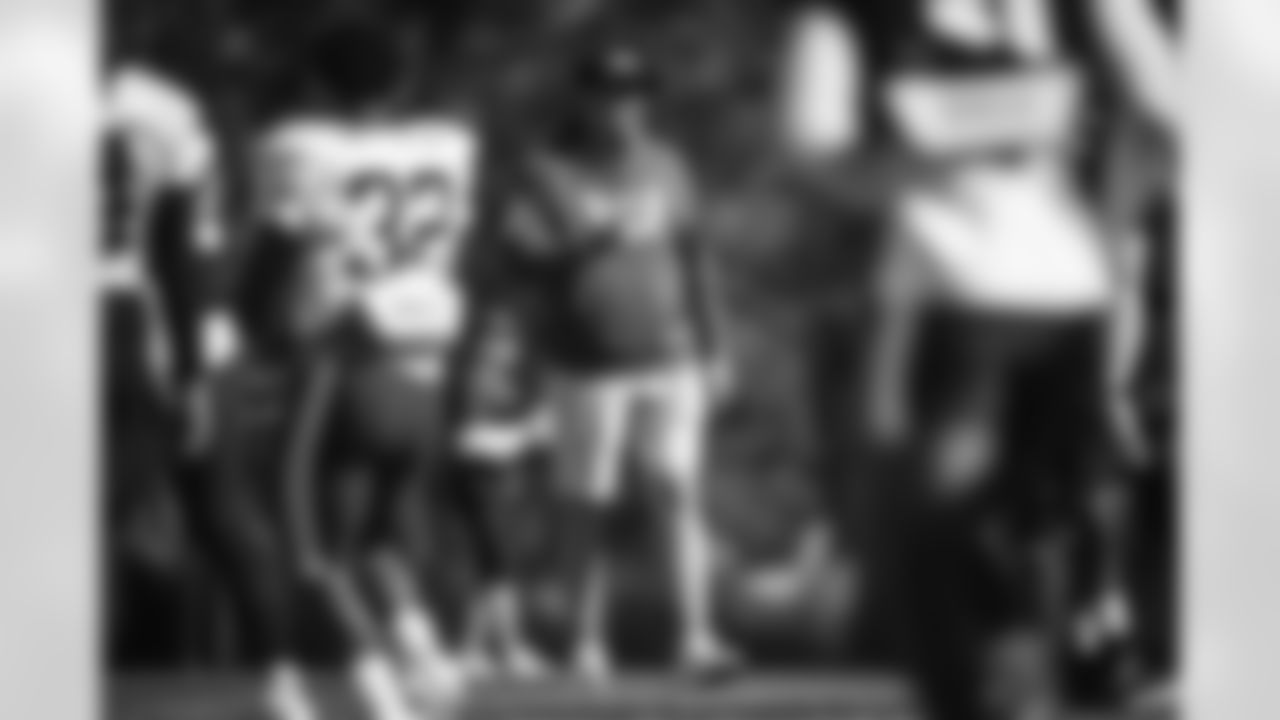

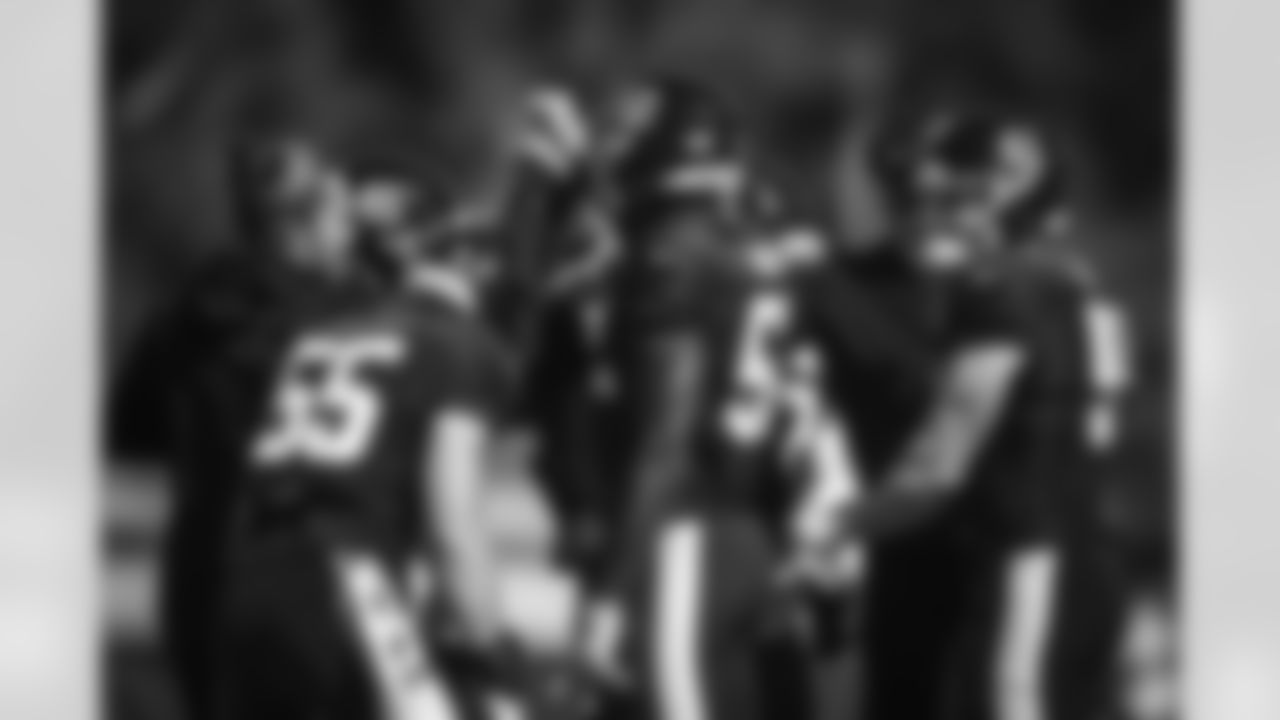



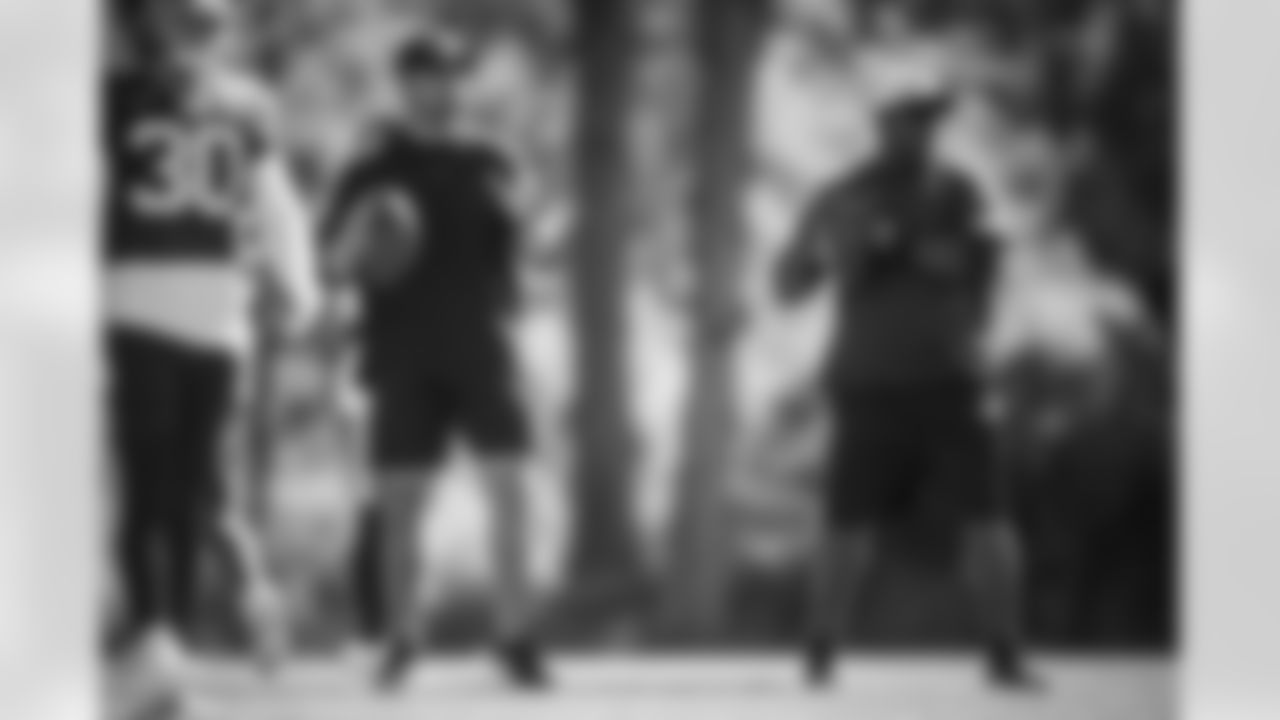





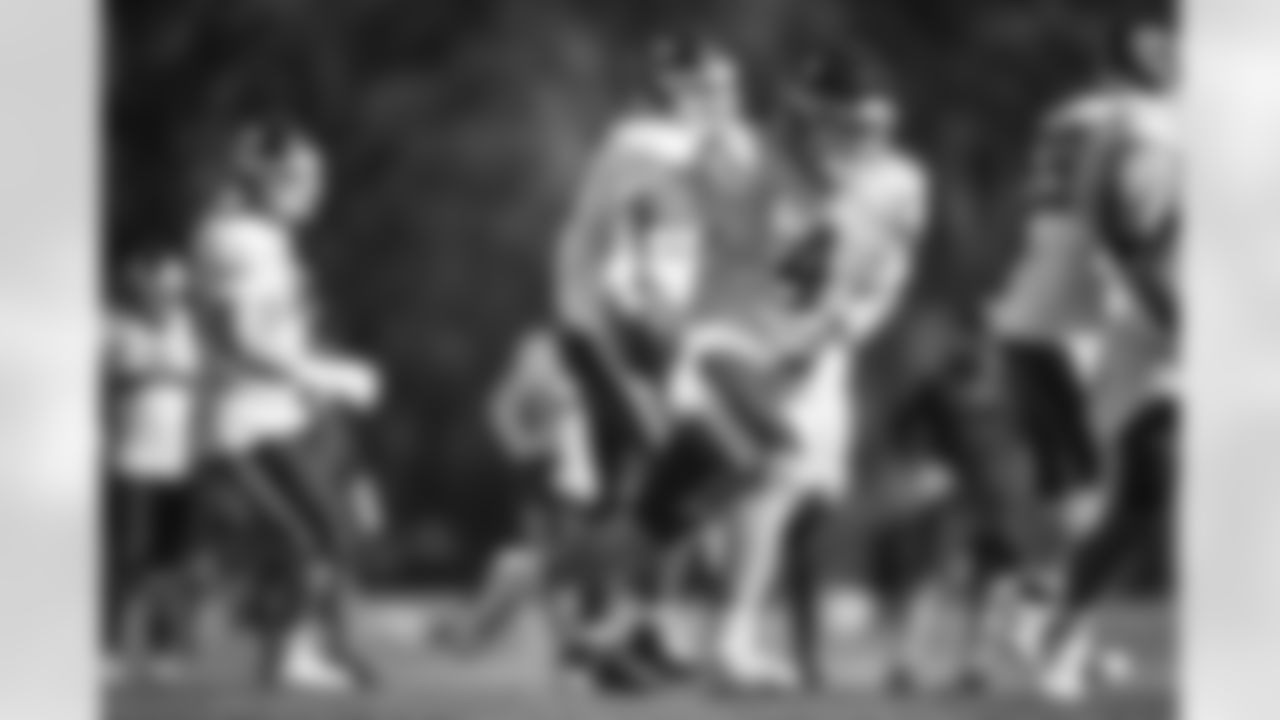
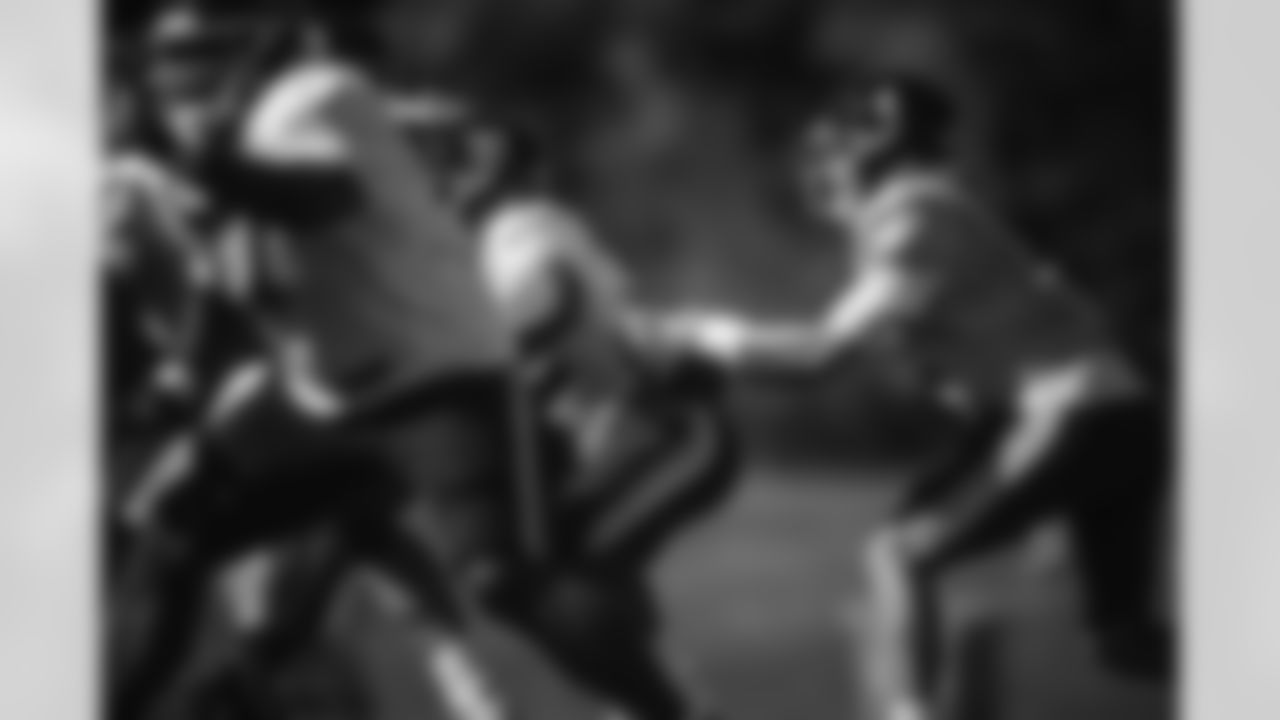
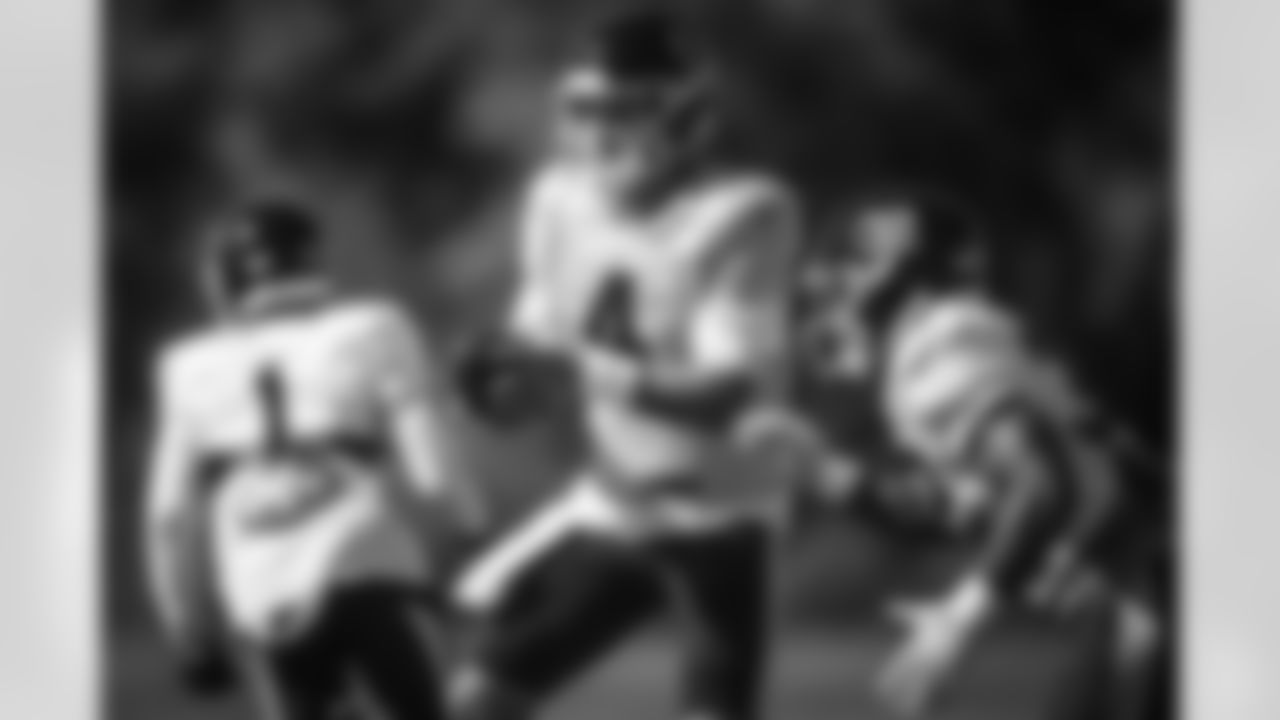



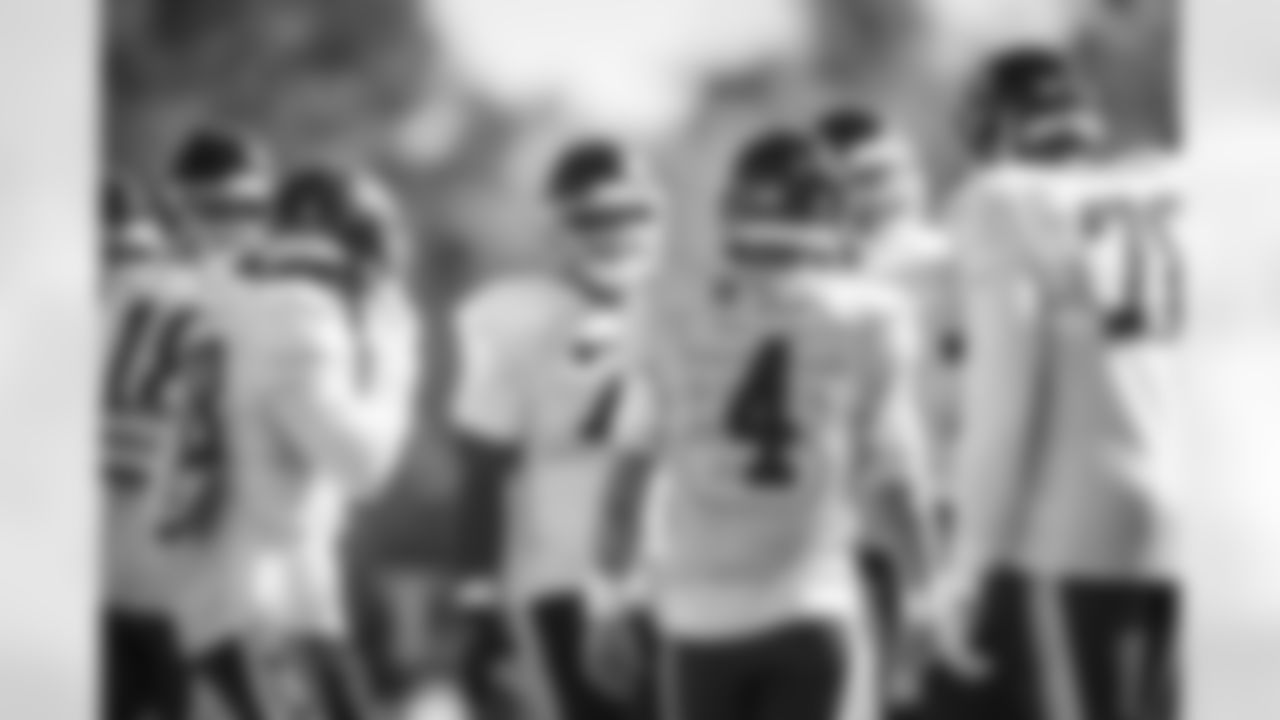


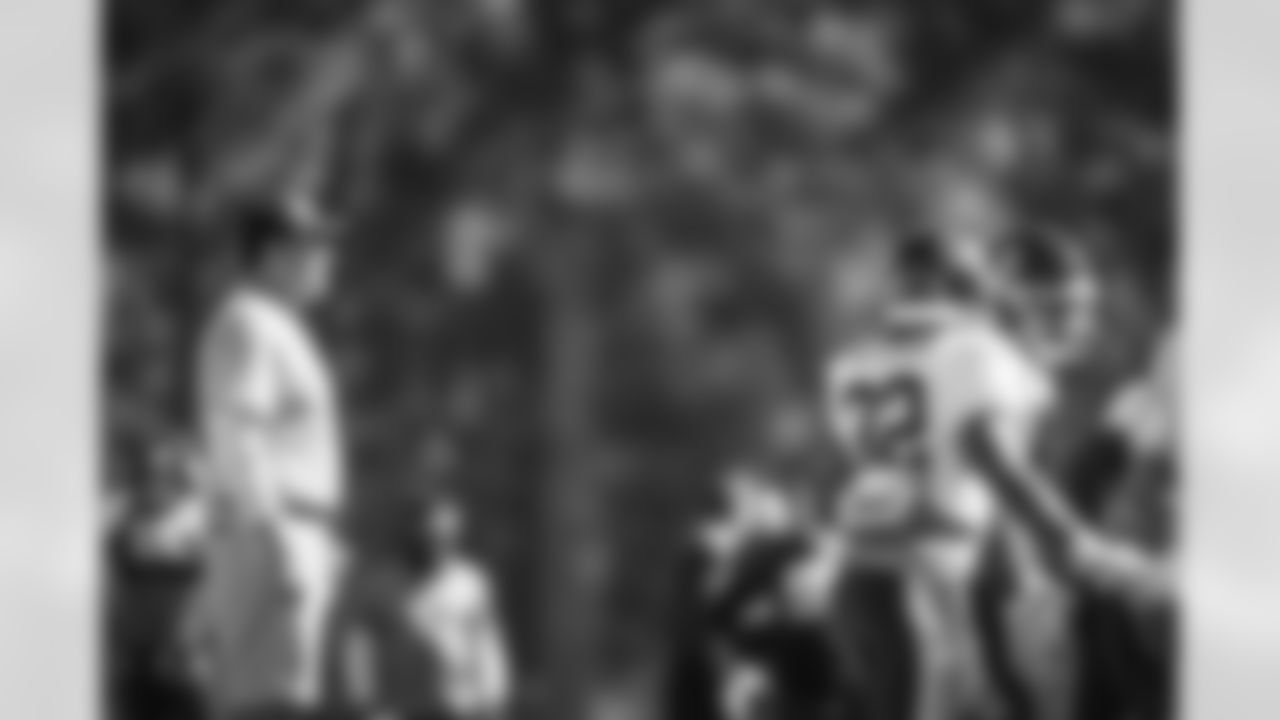











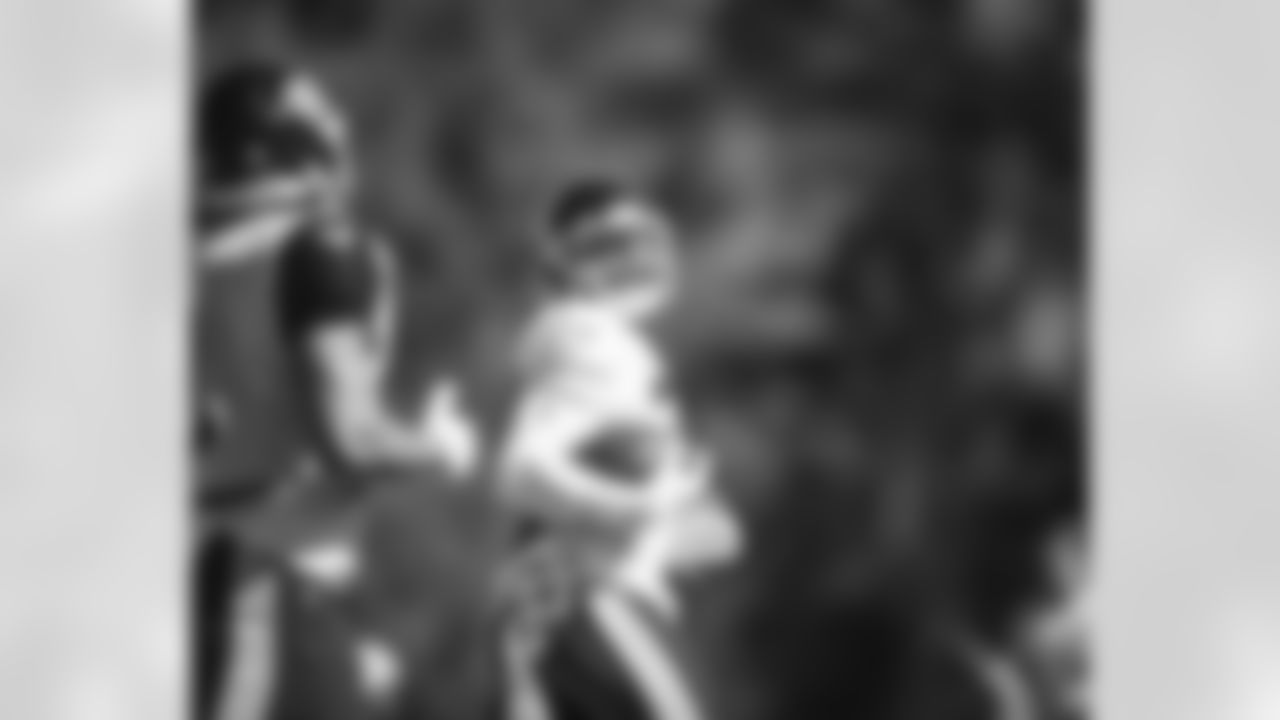

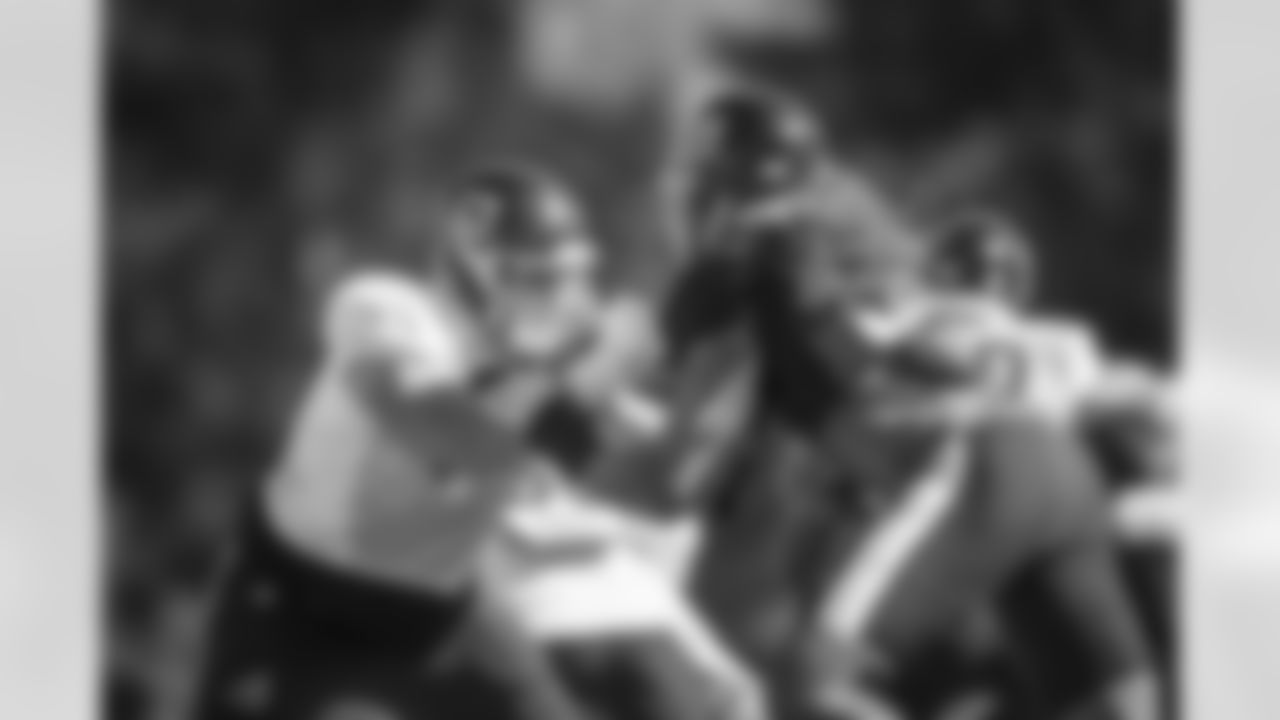



Despite his uncle's pedigree, Bug Rivera concedes he didn't clearly understand the demands of the profession until he started coaching. Actually, it happened before then: In 2017, when Ron Rivera was the Carolina Panthers' head coach, he brought in Bug as an equipment-room assistant.
"It was rough," Bug Rivera said. "Eventually I did some operations stuff, some scouting, special projects for [then-defensive coordinator] Steve Wilks… a little bit of everything. I'll be honest -- I did not know what I was getting into when I first started."
One adjustment for Rivera, now in his fourth year as a quality control coach, was learning to exist simultaneously in both the present and the future, one of the trickiest parts of the job. For all of the QC responsibilities pertaining to the game just completed and the impending opponent -- preparing grade sheets for the position coaches, writing up practice scripts, logging and drawing plays for the current gameplan -- they must break down film of future opponents' recent games and enter corresponding data into the system.
"You've got to try to stay at least three weeks ahead -- that's the part that kills me," Rivera said. "At the beginning of the week, you're already thinking about the next week, and your wires get crossed."
The coping strategy? Caffeine, obviously.
"That's when you know you're a real coach -- when you can fall asleep after drinking coffee," he said.
If Storm had a little extra coffee [and a little less sleep] last week, he had his reasons. Early on the Tuesday morning before Washington's game against Kansas City, he got a call from tight ends coach Pete Hoener, who'd just received a positive COVID-19 test and informed Storm he was being pressed into service.
"He called me at 5:45 a.m. as I was driving to work and said, 'Alright, you've got to meet with the tight ends at 6:45,'" said Storm, who would serve as the acting tight ends coach through Sunday. "It was double duty, but we got it done."
Storm is responsible for a very specific duty -- indeed, it's the skill that got him hired onto an NFL staff in the first place.
"We were looking for someone in Carolina [in 2018] who could do play cards," recalled Turner, who was the Panthers' quarterbacks coach at the time. "I was like, 'I've got a guy!' I'd worked with [Storm] at Michigan, and he's the best Visio drawer I've ever seen in my life."
After playing Division II football at Michigan Tech, Storm got a graduate-assistant job at his alma mater before moving to Central Michigan—for an annual salary of $11,000. During a meeting with a Detroit Lions' quality control coach, Storm learned of Microsoft Visio, a diagramming and vector graphics program that can be used to draw play cards. Mindful of his relatively small coaching network and lack of major college pedigree, Storm decided it would be a good career move to try to master the technology, which has since become increasingly prevalent in NFL buildings.
"l saw it as an opportunity," Storm said. "Looking back, if I had known what it would take to get efficient and good, I might have had some second thoughts. It's something you either want to do or don't want to do, and it basically takes reps. There were a lot of long, hard nights."
In a typical week Storm draws up Washington's short-yardage and goal-line runs, as well its entire passing game which, with various formations and shifts, usually consists of 200-250 unique cards.
"He is a monster," Luke Del Rio said of Storm. "You cannot be faster than he is. His normal amount would overwhelm most people. It's something you wouldn't really think of as important from the outside looking in, but that's a very, very valuable skill. "
The drawing process has even been known to infiltrate Storm's sleep cycle.
"Normally, if I have a dream about football," he said, "it's about a coach not being happy with what I drew."
Trying to keep their more experienced counterparts happy is a generally accepted part of the QC's job description. Though all four of Washington current quality control coaches praise Rivera and his other assistants for their professionalism, they've heard horror stories of people in their position being asked to do menial non-football tasks, from picking up coaches' prescriptions at the pharmacy to washing their cars. In 2019, current New York Giants head coach Joe Judge (then a Patriots assistant) told an amusing story on Super Bowl opening night from his time as a graduate assistant at Mississippi State. Judge said he and another GA spent several days during a bye week setting up a swing set in the backyard of tight ends/running backs coach Freddie Kitchens, and later had to move it to another coach's house after Kitchens left to take a job with the Dallas Cowboys.
"When I was a QC with the Bears," Ron Rivera recalled, "I took cars to get them washed and gassed for coaches, and I'd pick up sandwiches on the way back. On Thursday nights, which was when we finished up talking about the gameplan, I used to bring Tostitos and guacamole and salsa, and we'd break out a six-pick as we'd wrap things up."
At the time, Rivera was fighting against the skepticism faced by many former NFL players who enter the coaching profession, and the stigma that they don't understand the dedication it requires. Rivera had been partially propelled along that path by Payton, one of the greatest running backs in league history, after they stood next to one another on the Soldier Field sidelines during the Bears' 1996 season opener against the Dallas Cowboys. Rivera, who was working as a sideline reporter for SportsChannel Chicago, kept accurately analyzing the Cowboys' rushing attack and successfully predicted an outside-zone gain by Emmitt Smith.
"You should be coaching," Payton told Rivera.
"You know, I've thought about it," he replied.
That led to Payton recommending Rivera to Bears chairman Ed McCaskey, and eventually a spot on Dave Wannstedt's staff the following season as a QC. When he wasn't cleaning coffee pots, Rivera picked up skills that would help him as his coaching career progressed—skills he willingly passed on to those that followed in his footsteps. After leaving Chicago in 1999 and accepting a job as Andy Reid's linebackers coach in Philadelphia, Rivera helped train a young defensive assistant named Steve Spagnoulo. Rivera renewed acquaintances with Reid, now the Chiefs' head coach, and Spagnoulo, K.C.'s defensive coordinator, at FedEx Field last Sunday, a common scene that plays out in NFL stadiums across the nation on Sundays.
"What happens is, you have to learn from the bottom up," Rivera said. "Those things will stick with you. I still draw a lot of my own plays, and until I hired [coordinator or football programs Natalia Dorantes, last April] I used to do all the scheduling, scripting and planning myself.
"The thing about today's coaches is, they want to be elevated fast -- to get out of being a QC. Believe me, [Los Angeles Rams coach] Sean McVay is probably the target of every QC today."
Most entry-level coaches will quickly come to terms with the fact that they won't likely mirror the path of McVay, who became Washington's offensive coordinator before his 28th birthday and was hired by the Rams three years later, making him the youngest head coach in modern NFL history. Whatever the aspirations of Washington's QC Quartet, staying in the moment remains the best strategy for navigating an exhausting workload in a highly competitive field.
"When I start to feel like it's all too much," Del Rio said, "there's a voice in my head that pops in pretty quick: 'Man, there are thousands of people who want this job…' And then I get right back to the grind."
It's a sentiment shared by Bug Rivera as he and his fellow QCs try to sprint their way through a marathon, one relentless stride at a time.
"You've got to love football to be in this position -- otherwise, you're going to be miserable," Rivera said. "You can take a lot of pride in your work, but you know you can always do more. And everything can always be a little bit better."














